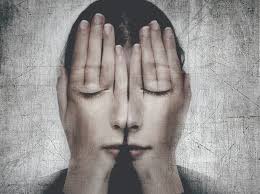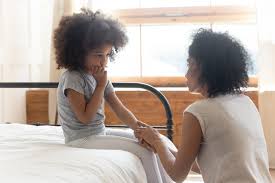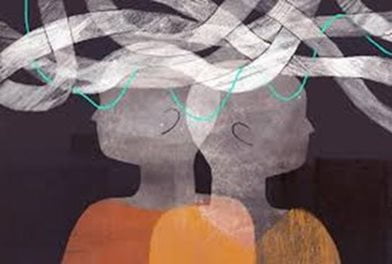Children who suffer from psychosis can have a difficult time in life because of their condition. Psychotic children often face challenges that other children do not. Thus, the parents must take on a big responsibility to help them get through it. In this blog post, we talk about what psychotic children are like, the signs and symptoms they may show, and treatment options for psychotic kids.
Contents
- 1 Who Are Psychotic Children?
- 2 Signs & Symptoms of Psychotic Children
- 2.1 Increasingly Volatile Behavior
- 2.2 Difficulty With Relationships
- 2.3 Changes In Sleep Patterns
- 2.4 Inability to Concentrate & Easily Distracted
- 2.5 Change In Speech Patterns & Saying Unfamiliar Things
- 2.6 Delusional Tendencies
- 2.7 Unusual Thought Pattern
- 2.8 Losing Interest In General
- 2.9 Trouble Sleeping Or Eating
- 3 Challenges Faced by Psychotic Children
- 4 The Role of Parents In Lives Of Psychotic Children
- 5 Treatment Options for Psychotic Children
- 6 Psychotherapists On Psychotic Children
- 7 Conclusion
Who Are Psychotic Children?

Psychotic children are those who suffer from psychosis, a severe mental disorder. They may not be able to differentiate between reality and imagination.
Children suffering from psychotic disorders have hallucinations, delusions, or both of these symptoms at the same time.
A child with either of these conditions is considered as having a psychotic illness that affects his daily life negatively impacting every aspect of family, school, and social life.
Signs & Symptoms of Psychotic Children
Psychosis in children is diagnosed through the observation of changes in behavior or thought patterns that are apparent to parents, teachers, or caregivers. Below is the list of symptoms shown by psychotic children:
Increasingly Volatile Behavior

There may be an increase in aggressive behaviors which result from hallucinations. Frequently seems sad, tearful, or moody with unexplained crying spells. It comes with frequent sad, tearfulness, or moodiness with unexplained crying spells. To make it worse, they become increasingly argumentative, aggressive, or irritable.
Difficulty With Relationships
Psychotic children may become isolated from friends and family. The child becomes increasingly fearful of people including parents, teachers, or other caregivers whom they have known for a long time. They also tend to talk about the same problems over and over again without ever resolving them in any way.
Changes In Sleep Patterns
The child experiences changes in sleep patterns. They may have insomnia or excessive sleepiness during the day which is a result of their medications or psychosis itself.
Inability to Concentrate & Easily Distracted
The child finds it difficult to concentrate and focus on tasks at hand as they are easily distracted by things happening around them in reality, hallucinations, delusions, etc. The child talks about things that are not real and may show a lack of interest in activities they had once enjoyed.
Change In Speech Patterns & Saying Unfamiliar Things
The child starts talking on their own, which is uncharacteristic for the age group, or does unusual things. Such as walking around naked at home while caretakers are present there.
Delusional Tendencies

A psychotic child usually hears voices telling him/her to do things that he/she knows to be wrong. Psychotic children have altered perceptions and may see or hear things that aren’t there, which can lead them to become delusional.
Unusual Thought Pattern
Another sign of a psychotic child is when they begin expressing thoughts in unusual ways. For example, instead of saying “I want ice cream,” the child might say, “The ice cream wants me to come to get it.”
Losing Interest In General
A psychotic child may have less interest in activities or hobbies that they were previously engaged with. They might begin avoiding their favorite people, places, and things. Psychotic children are also likely to show more of a preference for isolation which is often accompanied by an increase in sadness.
Trouble Sleeping Or Eating
A psychotic child may begin having difficulty sleeping or eating. They might have a significant change in appetite that results from hallucinations, delusions, paranoia, and anxiety. A lack of sleep can lead to irritability which is often expressed with aggression.
Challenges Faced by Psychotic Children
The challenges faced by a psychotic child can vary depending on what type of psychosis he/she is experiencing. A common challenge for children with schizophrenia is the inability to focus or pay attention to tasks at hand. It often affects their academic performance in school and relationships with family members.
A psychotic child is likely to have difficulty comprehending what is real and what isn’t. They may also be scared, embarrassed, ashamed, or confused by their symptoms. Parents or caregivers need to remain calm when providing support as excited reactions only increase the anxiety experienced by the child.
Children who experience hallucinations and delusions may become anxious and express their fears through aggression. As a result, they can be seen as disruptive by teachers and other children in the classroom which only exacerbates the problem.
The Role of Parents In Lives Of Psychotic Children
The family of psychotic children has to play a very important role in the treatment process. The parents have to be patient and supportive while dealing with their child who is struggling with psychosis, hallucinations, delusions, etc. They should listen carefully without interrupting them when they talk about their hallucinations or other symptoms. Parents have to take care of their mental health so that they can help the child in a better way.
Parents should avoid challenging hallucinations and delusions, which can lead to increased agitation in children with psychotic tendencies. Instead, parents need to acknowledge these symptoms without judgment while advising on how they might be able to cope or manage such thoughts when experienced outside of their home environment. Parents also need to reassure the child that nothing is wrong and that it’s okay to talk about their feelings and thoughts.
Treatment Options for Psychotic Children

Psychotic children require a multidisciplinary approach to treatment. It includes medications and counseling from mental health professionals along with the help of family members who must be patient while dealing with their child’s symptoms. It is also important for parents to take good care of themselves to better support their psychotic children throughout their treatment.
Medications
Psychotic children require medications which may include antipsychotics, antidepressants, mood stabilizers, or sedatives depending on what symptoms they are experiencing at any given time. Medications should be closely monitored by doctors who can adjust them as needed.
Counseling
Psychotic children benefit from counseling sessions with a therapist. The family doctor or psychiatrist can refer them to a licensed mental health professional. Especially those who specialize in psychosis, hallucinations, delusions. They may also help the psychotic child by providing support and guidance to parents as well as taking care of any other medical conditions that coexist with their diagnosis.
Emotional Support Groups
The parents can also take their child to an emotional support group for normalizing the feelings of psychotic children. They have to be with other children who are in a similar situation. So that they can understand each other better and know how others deal with the different symptoms experienced by them.
Therapy
Here is the list of options available in therapy:
One-on-one play therapy
It is another option where psychotherapists help children in dealing with their hallucinations or delusions. They can also deal with the feelings of anxiety they experience because of these issues.
Cognitive Therapy
Cognitive therapy is used to help psychotic children in identifying and challenging the thoughts that form their delusions. These sessions can be effective in helping a child cope with symptoms of psychosis by learning coping mechanisms for future use.
N-of-One Therapy (NOT)
It was developed by Dr. Arthur G Wilmarth Jr at The George Washington University School of Medicine and Health Sciences in 2012. NOT is helpful for some psychotic children as it focuses on one symptom at a time, rather than taking an all-income approach.
Family Therapy
It can also be helpful to take the child for family therapy sessions. The therapist may help the parents in dealing with their psychotic child who might have hallucinations or delusions, etc.
Psychotherapy
Psychotherapy also plays a major role in the treatment of psychotic children. In psychotherapy, the child and family meet with a therapist to address concerns related to psychosis, hallucinations, delusions, etc. Together they develop plans that work best for everyone involved including parents who have been struggling all this time while taking care of their son/daughter.
Psychotherapists On Psychotic Children

Psychotherapists are of the view that parents and teachers of psychotic children need to understand that they are not in control of their child’s behavior. They should be patient with the fact that even though they might have been behaving normally. Psychosis can make it impossible for them to function at all. In such cases, parents need support from others who deal with psychotic children regularly.
They also advise parents on how to deal with psychotic children. They recommend watching them without judging while advising on how they might be able to cope or manage such thoughts when experienced outside of their home environment. Parents also need to reassure the child that nothing is wrong and that it’s okay to talk about their feelings and thoughts.
People misunderstand psychotic children because of the stigma that surrounds this mental illness. Thus parents should not hold themselves back from seeking help from professionals like doctors, psychiatrists, or therapists. They are competent to provide them with proper medication as well as counseling for their child. Simultaneously, it is also important to monitor their medications daily so they don’t experience any adverse effects shown by their behavior.
Conclusion
It is important to keep in mind that not all children who are suffering from the psychotic disorder will have the same symptoms. Some may show aggressive behavior, while others can be withdrawn or only express their delusions through drawings and stories. There is currently no cure for this type of mental illness. But treatment can help manage it so that they don’t become dangerous. If you think your child might be experiencing psychosis, talk to a professional about what they should do next before it becomes too serious.
For more information and Guidance, please contact MantraCare. If you have any queries regarding Online Child Counseling or Teen Counseling experienced therapists at MantraCare can help: Book a trial therapy session


